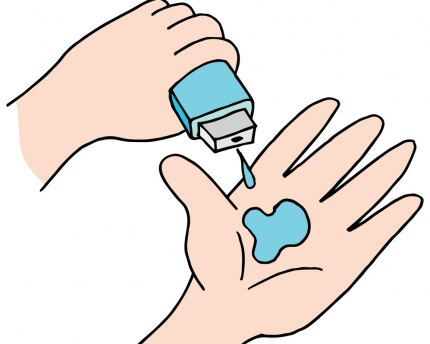Should we ditch the hand sanitizers?

It seems like a good idea, but scientists aren't so sure.
-- Betsy Edger, via e-mail
Your friend may be onto something. The so-called Hygiene Hypothesis—first put forth by British epidemiologist David Strachan in a 1989 paper in the medical journal Thorax—suggests that a lower incidence of infection during early childhood (thanks to more sterile, less crowded environments compared with earlier times) could explain the rapid rise in allergic diseases in the late 20th century. As the theory goes, in the modern world our immune systems no longer have to deal with the vast numbers of potential real pathogens we experienced during the previous stages of our evolution. With so much more time on their hands, our antibodies rise up against other perceived dangers—gluten, peanuts, milk—which are not really threatening. Our immune systems’ over-reaction manifests itself in the form of pesky and occasionally life-threatening allergies.
And the research does seem to bear out the hypothesis. A 2003 Australian study concluded that asthma and allergy rates are higher for those who move from a developing country to a developed country. A 2007 study by a group of international researchers at the Centre for Research in Environmental Epidemiology found that “frequent use of common household cleaning sprays may be an important risk factor for adult asthma.” And a 2011 study by German researchers found that children living on farms—and therefore exposed to a wider range of microbes than their urban and suburban peers—had statistically significant lower asthma rates.
Yet others, like University College London researcher Graham Rook, think there’s more to the story. He attributes rising rates of inflammatory and other human allergic disease not to modern-day hygiene but to lack of exposure to so-called old friends—microbes present in hunter-gatherer times when human immune systems were evolving. Rook backs up his Old Friends Hypothesis by citing other studies shedding light on the connection between good health and exposure to greater biodiversity in general.
“Lifestyle changes, antibiotics, caesarean births and lack of breast-feeding limit the transmission of maternal microbiota to the next generation,” says Rook. Our unvarying diets lacking the microbial diversity with which our bodies evolved, combined with limited contact with the natural world, aggravate the problem. “Without these microbial inputs in early life our immune systems, endocrine systems and metabolic systems do not develop correctly, and can malfunction.”
The moral of the story? Whether you agree more with Strachan or Rook, don’t be scared to indulge in nature or become a germaphobe. Get your kids out into the yard, park, playground or beach where they can mingle with the dirt and get exposed to as many different microbes as possible. They’ll live healthier lives and handle future health threats more easily than those who spend their childhoods over-sanitized indoors. Chances are they’ll be happier adults, too, given the research correlating lack of outdoor time with increased rates of depression. Who would’ve thought that dirt cures?
Resources:
Household Cleaning Sprays & Adult Asthma
Environmental Microorganisms and Childhood Asthma
Related:
This column was reprinted with permission. EarthTalk is produced by Roddy Scheer and Doug Moss and is a registered trademark of the nonprofit Earth Action Network. To donate, visit www.earthtalk.org. Send questions to: question@earthtalk.org
Like us on Facebook and tell us what you think.

